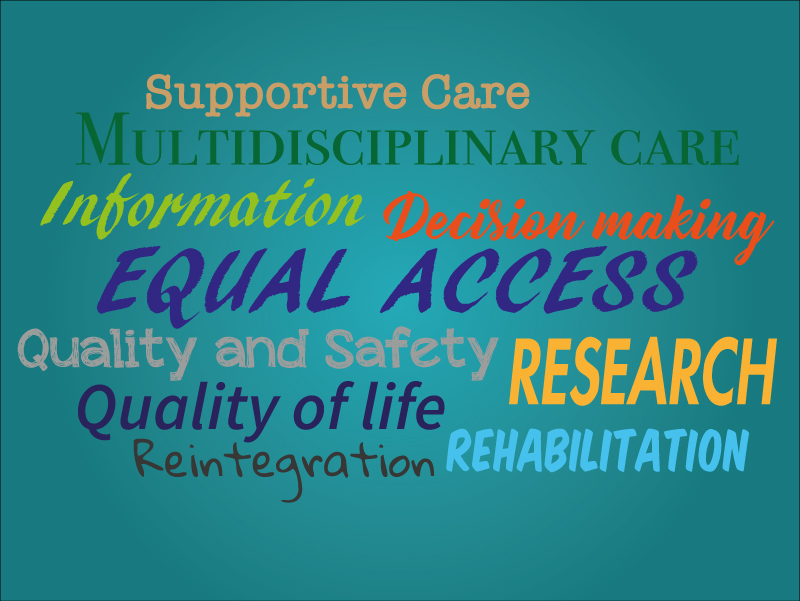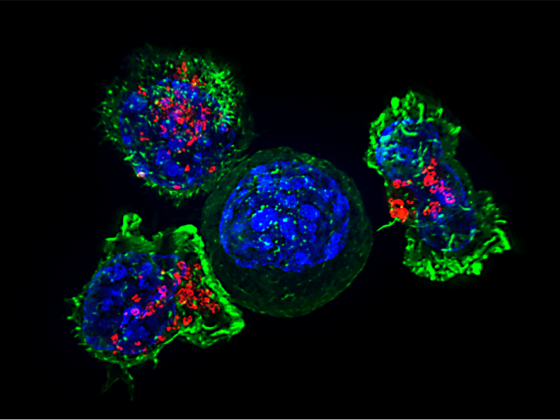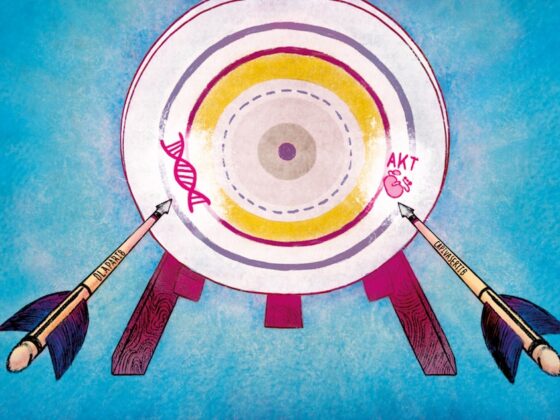The European Code of Cancer Practice was launched on 23rd September in Brussels by the European Cancer Organisation to empower citizens with 10 key ‘overarching’ rights and reduce cancer care inequalities across Europe.
“This powerful new tool sets out the core requirements for excellence in clinical cancer practice to improve outcomes for all cancer patients in Europe,” explains Matti Aapro, President of the European Cancer Organisation, a body that convenes oncology professionals and patients across Europe to advocate for positive change.
“The rights we are championing in the European Code of Cancer Practice will empower European citizens to survive cancer and live longer, healthier and more productive lives,” says Mark Lawler, Co-chair of the European Code of Cancer Practice initiative.
Kathy Oliver, Vice-Chair of the European Cancer Organisation’s Patient Advisory Committee, adds, “From today, cancer patients across Europe can turn to The Code and know exactly what their rights are throughout the whole of the cancer pathway.”
Although Europe undoubtedly provides some of the best cancer care in the world and conducts high quality cancer research, there are still significant disparities between individual European nations and regions in a number of key areas. Disparities identified include accessing care, patient information, delivering optimal treatments and outcomes, access to multidisciplinary teams, and good communication.
The Code, co-produced by a team of cancer patients, patient advocates and cancer professionals, has its origins in the European Cancer Patient Bill of Rights, launched in the European Parliament on World Cancer Day in 2014, which resulted in a call to action to address the significant disparities that exist for European cancer patients.
The Code, which is fully supported online with extensive evidence, states that patients have a right to:
- Equal access to affordable and optimal cancer care, including the right to a second opinion.
- Information about their disease and treatment from their medical team and other reliable sources, including patient and professional organisations.
- Information about the quality and safety of care, the level of expertise, and the outcomes achieved for their type of cancer in the centre where they are being treated.
- Receive care from a specialised multidisciplinary team, ideally as part of a cancer care network.
- Participate in shared decision-making with their health care teams about all aspects of their treatment and care.
- Be informed about ongoing research relevant to them, and their ability and eligibility to participate in research.
- Discuss with their healthcare team about their priorities and preferences to achieve the best possible quality-of-life.
- Receive optimal supportive and palliative care, as relevant during any part of their cancer journey.
- Receive and discuss with their care team a clear managed and achievable plan for their survivorship and rehabilitation
- Be fully reintegrated into society and protected from cancer-related stigma and discrimination, so that, is so far as possible they can return to work and a normal life.
In the online document each of the 10 ‘overarching’ rights is supported by a short explanation of the background and linked to three questions patients may choose to ask their health-care professionals.
The Code, says its authors, can also be used as a framework around which quality standards, policies and practices for excellent cancer care can be developed, delivered and monitored. Furthermore, it represents a ‘living document’ that will undergo continual revisions to ensure it captures the most up-to-date requirements of European citizens, and emerging evidence for improvements in patient outcomes.
Looking to the future, the European Cancer Organisation says that they plan to produce Code statements specific to individual cancer sites (for example, colorectal, breast, prostate and lung cancers), and also particular aspects of cancer practice (for example, primary care and multidisciplinary care).












